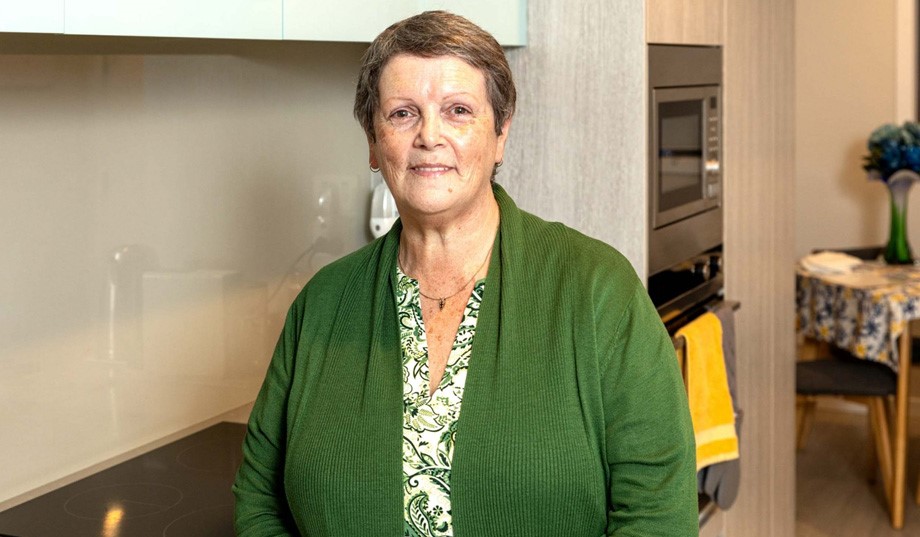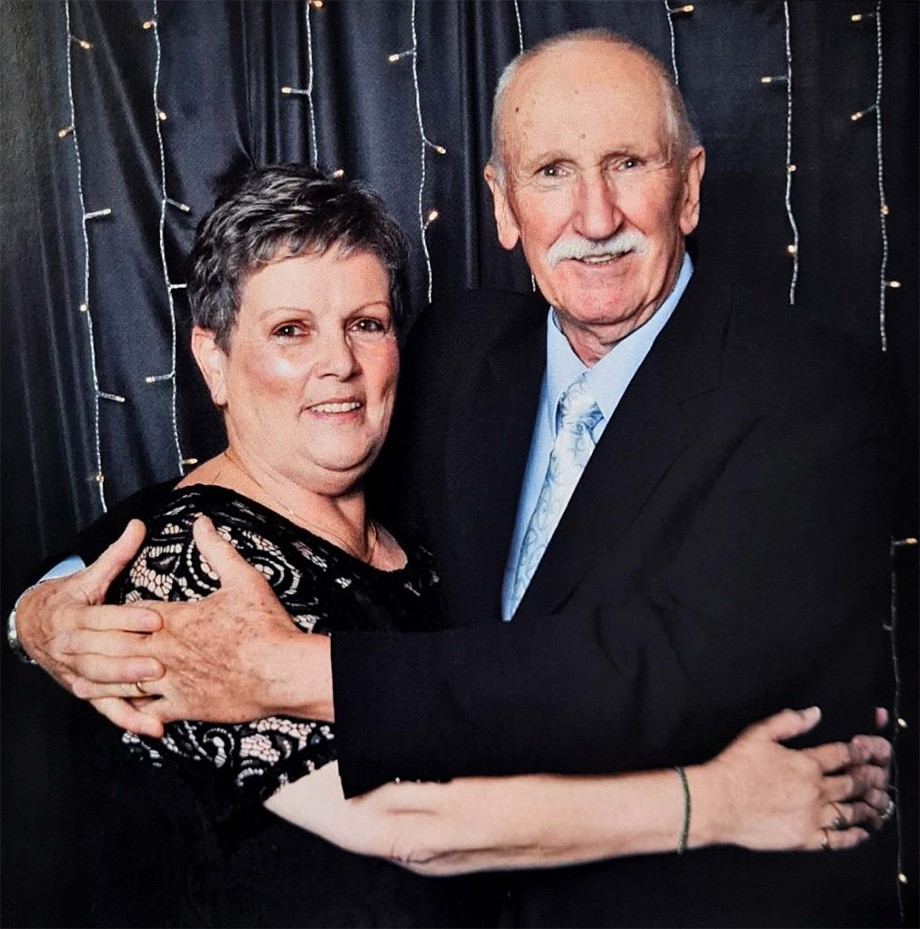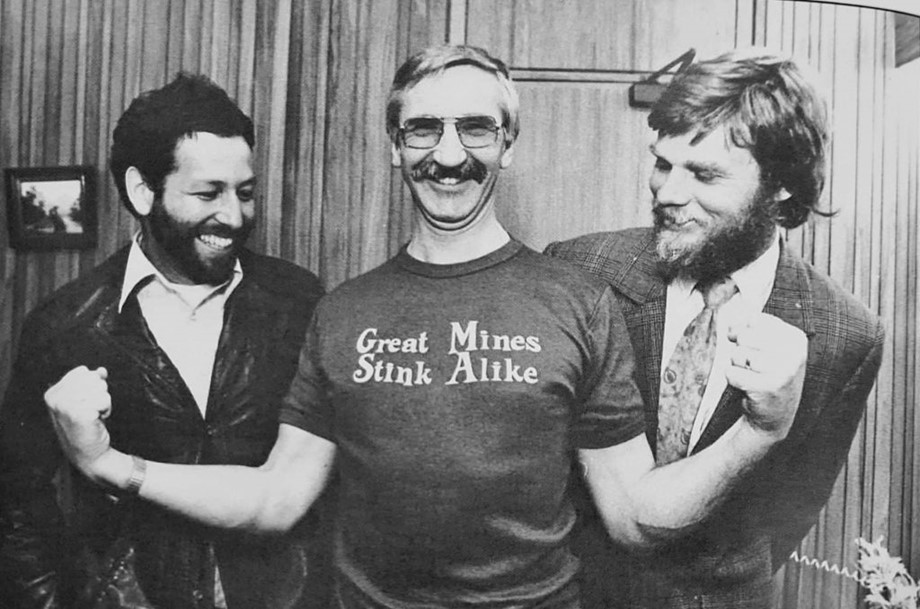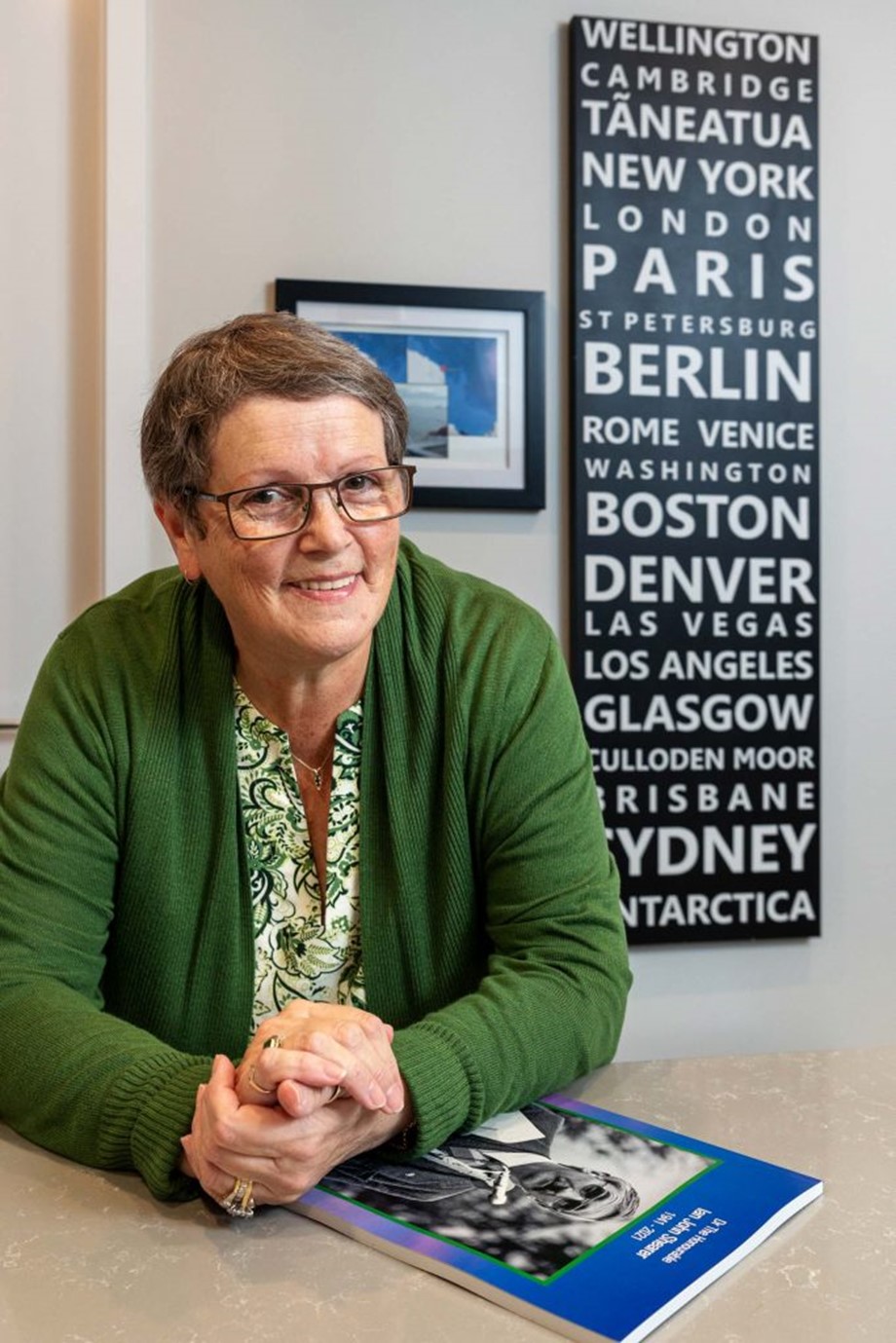News and notices Pānui
No ordinary goodbye
30 August 2022
Cheryl and Ian’s story shows how advance care planning provides comfort and certainty for both the person whose life is ending and those who stay behind.

Ian and Cheryl Shearer were no ordinary couple. From crossing swords with former prime minister Rob Muldoon to selling up everything and moving into a motor home, the pair lived life their own way.
It is hardly surprising then, that when Ian received an unexpected terminal diagnosis, they immediately began to plan how they would prepare for the end of his life in a way that suited them.
“No one who truly knew us as a couple would be the least bit surprised that we had been talking about this together almost daily since we knew there would be an end we hadn’t planned for,” Cheryl said.
Ian was an advocate of advance care planning – the process of thinking about, talking about and planning for future healthcare, including end-of-life care – although he preferred to call it “absolutely critical preparation”. This meant Cheryl was able to enjoy the time they had left together while knowing for certain what treatment he did and did not want and what to do when he was gone.
“Long story short, Ian’s advance care plan didn’t end with his death, it rolled into my future so that I am continuing to share my life with him,” she said.

A radical choice
Ian Shearer was an environmentalist, a politician and a man of principles (notably crossing the floor on National Party leader Robert Muldoon’s stance on abortion reform). Cheryl works as records manager and privacy coordinator at Te Whatu Ora, Health New Zealand, Hauora a Toi Bay of Plenty – and Ian was the love of her life. The pair were going to travel overseas to celebrate Cheryl’s 65th birthday and pre-celebrate the couple’s 35th wedding anniversary, which coincided with Ian turning 80, but before doing that they had big life changes planned.
On September 3, 2012, the 31st anniversary of the start of the pair’s love affair and ongoing relationship, they both realised they had been thinking the same thing. “We decided to share our secret thoughts. . . that we both wanted the years we spent together at the end of our lives to be on our own terms. We didn’t want to be tied to a house with a mortgage. We wanted to do something different, something radical,” she said.
So by the time Cheryl turned 65, in June 2021, they planned to sell their house and possessions, move Ian’s papers into storage and have a mobile home built.
“At the end of April 2015, Ian found a mobile home called Fifth Wheel and on September 5, 2015, just three years and two days after we shared our secrets, and six years earlier than our initial plan, we were in our new mobile home. We had great fun there. Ian wrote his books, and I completed an online MBA.”
Shock diagnosis
By mid-2019, Ian was tiring easily carrying out caravan-related chores, but the couple put it down to his age and the physical exercise he was getting.
But by late August that year, when he couldn’t shake off a cough, they headed to the GP. An x-ray, CT scan and a barrage of other tests followed, and Ian was diagnosed with idiopathic pulmonary fibrosis.
“Ian was a researcher, so he researched the illness and knew practically all there was to know about the diagnosis, symptoms, treatment, side effects and prognosis. We sat together over a long weekend and talked about what he wanted. Ian made it clear that no one was to be told his actual diagnosis without his consent, and we agreed we would call it a respiratory problem. We couldn’t stay in the mobile home as Ian couldn’t do all the physical work and he didn’t want me to do it. So, we moved to a flat in town and sold the Fifth Wheel.
“Just about four months after his diagnosis, disaster for the world but salvation for me came in the form of Covid-19,” Cheryl said. “With Ian’s susceptibility to any illness that might affect his lungs, he needed stringent lockdown, and that meant the same for me. I was able to work remotely and spent alert levels two to four in Ian’s company. That was a real privilege for us both – we got to spend almost all of our time together. Ian seemed to flourish in the flat and wrote three books during lockdown.”

Absolutely critical preparation
Cheryl says she feels privileged to have been able to walk alongside Ian during the end of his life’s journey.
“It has been an amazing honour and experience to do this with and for Ian and to do it right (ie, what Ian wanted.) None of this was about me, it was always Ian and what he first made clear in his advance care plan – or as he preferred to call it, ‘absolutely critical preparation’ for his death and all that came after it.”
The most key factor of advance care planning is trust, Cheryl says. “And that is what Ian had in me – trust that, no matter what, I would follow his wishes and ensure that his wants were met. Yes I know, once he was gone he wouldn’t know – but I would, and that was what mattered most to me. He told me to do what I need to do, talk with whomever I need to and share whatever I needed to share to cope.”
What Ian wanted
Ian Shearer’s illness and death was a surprise to many, and that was exactly what he wanted.
“All the way along, we had talked about what he wanted for his end of life and had started a detailed plan. He didn’t want a funeral or a memorial service and didn’t want a funeral director involved. He wanted a coffin, a pine-style box with rope handles like the ones in the John Wayne westerns, so I found one and had it delivered. There it sat, up against the wall in our garage, from August 2020 until it was needed.
“Once he got into the detail of what exactly he did want, I realised just how private he wanted his end of life to be,” Cheryl said.
“We would need someone to certify his death, someone to help me get him ready for his coffin, someone to help me with his coffin (we had already had a trial run and knew it would fit in the back of our station wagon) and all the paperwork that would be needed. He chose three of my colleagues he considered to be friends and asked me to approach them – all readily agreed to be there when they were needed.
“The Department of Internal Affairs sent me copies of what was needed for certifying his death, and I sourced all the documents from the local district council that would allow him to be cremated. We both sat together and filled in the bits that we could.
“He decided to make videos for family and friends – to thank them and wish everyone the best for the future. He wrote scripts, and I printed them in large font for him. He was determined to make all the videos on the same day and wanted to wear his favourite bright green top. It was one of the last times he was able to talk for any length of time without being too breathless.”
Looking to the future
“Ian wanted an end-of-life plan that would cover my future too, so we sat and talked about what he needed to have happen, or to know would happen in the future, for him to feel safe to say goodbye.
“We talked each day about what he wanted and tweaked the plan as things came to mind or preferences changed.
“Unbeknownst to me, when he was on the computer, Ian was writing letters too. He wrote a letter to each of the people who would come to support me on his death and to others who had been supporting me, like my manager. He also wrote me a letter and placed it in the birthday card he had for me, along with the myriad presents he had arranged through online purchases. Although I had not expected him to die before my birthday, somehow he knew he wouldn’t last that long.
“His end-of-life plan had all the tasks I, and others, would need to perform set out in a table. I drafted the funeral notice for the newspaper and notifications to family, friends and former colleagues. Ian approved the wording, tweaking it here and there. He wanted to be privately cremated and then for me to tell family and friends.”

Last-minute worries
About three weeks before Ian died, he wanted an addition to his end-of-life plan. He began asking questions about how long the batteries would last in his portable oxygen concentrator (about 10 hours). “Great, they will last quite a while in my coffin,” he said.
Surprised, Cheryl pointed out that he would not need oxygen in the coffin and that having it in there would likely blow up the crematorium. “Cool,” was his response. “That will blow me to the moon.” Despite his joking, it was obvious something was playing on his mind.
“Not much more was said until he asked me to make a change to the advance care plan and add ‘with absolute certainty’ after ‘certify death’. And it was with absolute certainty that his death was certified,” Cheryl said.
Set out in black and white
“While Ian died sooner than anyone expected, apart from perhaps him, the end-of-life plan just flowed,” Cheryl said. “All the ‘absolutely critical preparation’ just fell into place, and everything was completed as expected. I didn’t have to think about whether I was doing what he wanted, because it was all there in writing. I didn’t have to involve others, because all the documentation was there ready for completion. Once the cremation was over, I knew what to say and who to say it to. Everything was there, set out in black and white.
“Most important for me was the list of things that Ian needed me to agree to doing so that he felt safe to leave me on my own after nearly 40 years together. Go to the dentist, get new glasses, get a new car, separate his ashes and pass them to family to scatter near their own homes, and for me to visit family in Australia and take ashes with me too.”
In December last year, Cheryl visited Wellington to scatter some of Ian’s ashes, and in 2023 she hopes to travel overseas with his ashes to all the places they had visited, to leave a little bit of him there.
“Having the plan has helped me not to have ‘if only’ moments and has allowed me to grieve how best suits me and to also share my stories with family and friends – something Ian was completely in favour of me doing as he felt his journey (which was also mine) was worth sharing because of how special it was.”
A surprise message
Three months after Ian’s death, he hadn’t stopped surprising Cheryl, who found a letter he wrote to her just five days before he died. “The 40th anniversary of the start of our relationship was on September 3. Over the years, whenever we were home on that day and it was convenient, we would watch a favourite movie – Kenneth Branagh’s adaptation of Much Ado About Nothing. So I decided to do that and, on opening the DVD case, found the letter. The letter was just beautiful – it acknowledged his sadness at leaving me and thanked me for looking after him. Finding it just three months after Ian had died, it came just at the right time for me. It was as if he had somehow known that I would need to hear from him then.
“Although death may have parted us physically, Ian lives on in my heart and in my mind – the love of my life.”
About advance care planning
Advance care planning helps you, the important people in your life and your healthcare team understand what you want – especially when you are very sick.
An advance care plan includes what is meaningful to you, your values and the ways you would like those caring for you to look after your spiritual and emotional needs. It covers what care and treatment you would prefer and any treatment you would not want if you became seriously ill. It can also cover things you want to have happen after you die, such as whether you wish to donate your organs, what sort of funeral you would like and where your important papers are.
Free resources are available to help you with these conversations. Go to ACP information for consumers at myacp.org.nz. Topics include:
